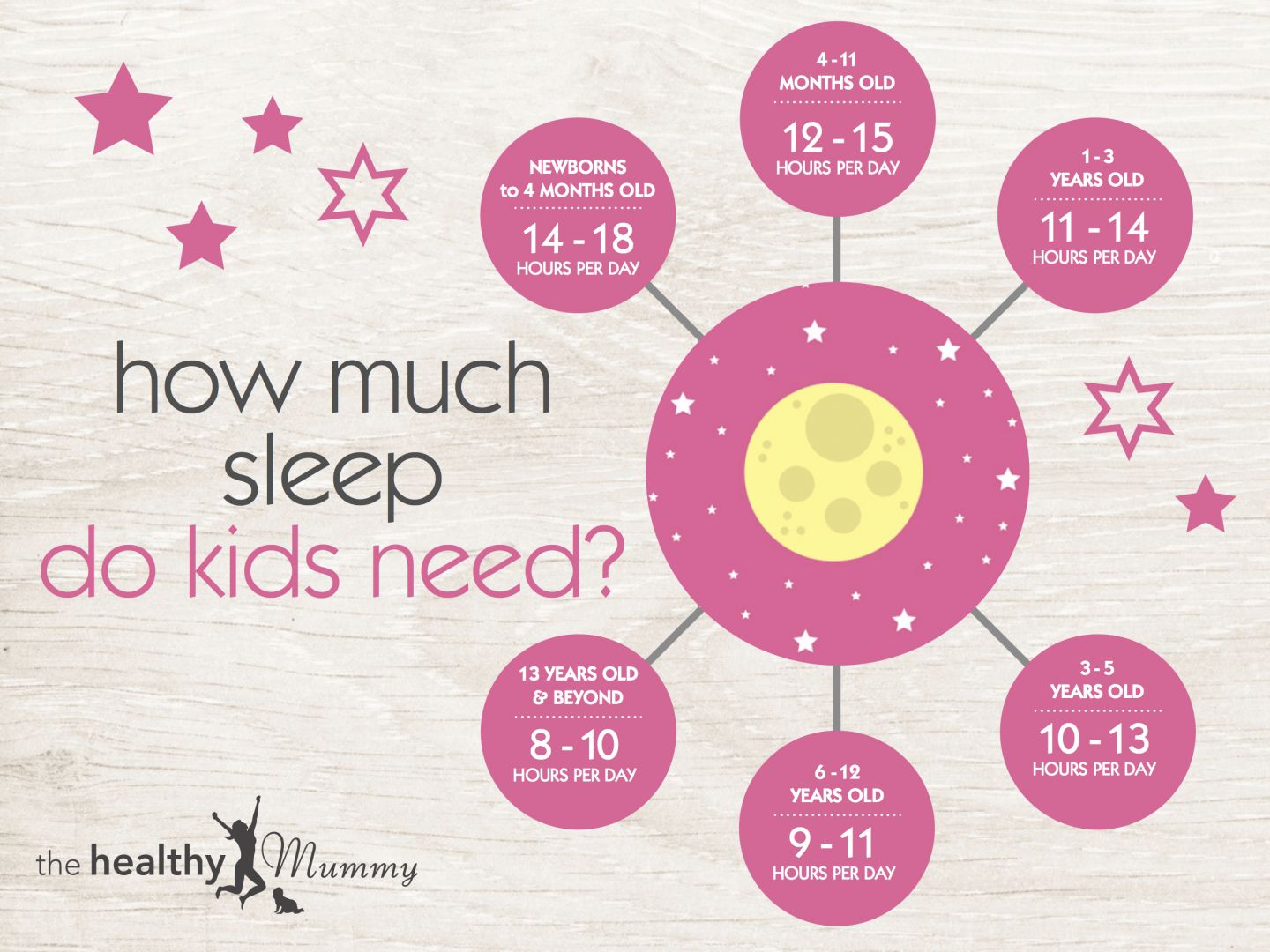Sleep is a constant source of angst for so many mums, especially those of us who have children who refuse to have much of it or rise much earlier than the sun does.
One minute we’re worrying about whether our babies or big kids are actually getting enough sleep for their age, the next we’re concerned that they seem to be sleeping too much!
Well according to the Sleep Health Foundation:
- From birth to two months the length of one period of sleep can be 30 minutes to 3-4 hours, this is throughout the day and night. It also says that babies feed from a bottle tend to sleep longer at a time than breast-fed babies, 3-4 hours versus 2-3 hours.
- At two months babies usually start to sleep for longer at a time, especially at night between 12 and 5am. This is because their start to develop their circadian rhythm. But don’t be concerned if your baby isn’t because this isn’t always the case. Many of us have spent endless hours with babies who are wide awake in the middle of the night.
- By six months of age some babies can get 5 to 8 hours of sleep at night but 25-50% of 6 month old babies are still waking up at night.
- From 2 months to 12 months, the number of daytime naps goes down from 3 to 4 naps to two naps and morning naps usually stop between 12 and 18 months of age.
- It’s suggested you always give a chance for an afternoon nap after lunch and before 4pm but daytime naps become less common from about 2 or 3 years onwards.
- Consistent daytime naps after 5 years of age are not normal and could mean your child is not getting enough sleep at night due to poor sleep routines, sleep problems or sleep disorders.
So how much sleep do kids really need?
- Newborns (0-3 months): 14-17 hours each day
- Infants (4-11 months): 12-15 hours
- Toddlers (1-2 years): 11-14 hours
- Pre-schoolers (3-5): 10-13 hours
- School age children (6-13): 9-11 hours
- Teenagers (14-17): 8-10 hours
According to sleep researcher Dr Sarah Biggs, too many Australian children and teenagers are not getting the 11 and 9 hours they need respectively each night.
She says it’s not uncommon for children to regularly get just 7 or 8 hours of shut eye, with many going to bed at 9pm on weeknights. Not getting enough sleep is even more common in teens.
“Up to 40 per cent of young people have poor sleep schedules, varying their bedtime and wake time by as much as two hours throughout the week,” she said.
She said parents can help by encouraging their child to follow a good sleep routine during the week and on the weekend.
“We know that a busy social schedule, homework overload, coffee and late-night TV and the internet mess with kids’ sleep schedules. If you notice this happening, it’s time to sit down with your children, explain how vital a good sleep actually is and set a consistent routine,” Dr Biggs said.
The 10 Commandments for Better Sleep for kids aged 0-12 years
- Go to bed at the same time every night, preferably before 9pm
- Have an age-appropriate nap schedule
- Establish a consistent bedtime routine
- Make your child’s bedroom sleep conducive – cool, dark, and quiet
- Encourage your child to fall asleep independently
- Avoid bright light at bedtime and during the night, and increase light exposure in the morning
- Avoid heavy meals and vigorous exercise close to bedtime
- Keep all electronics, including televisions, computers, and mobile phones, out of the bedroom and limit the use of electronics before bedtime
- Avoid caffeine, including many fizzy drinks, coffee, and teas
- Keep a regular daily schedule, including consistent mealtimes


